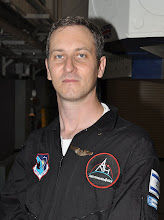"Don't worry, it will be alright" is a loose translation of a too-common Hebrew saying in Israel. It can be a response to any concern, from minor to detrimental.
It is tragic that the lives of the seven astronauts of STS-107 on board of Columbia would be lost on reentry because of the same mentality with the first Israeli astronaut on board. Rick D. Husband, William C. McCool, Michael P. Anderson, Kalpana Chawla, David M. Brown, Laurel Clark and Ilan Ramon, mission specialist and honored Israeli combat pilot.
Unlike NASA's two other life-taking catastrophes, when the disaster, start to finish, took place in a matter of seconds, this time was more like a Shakespearean play, when a fatal mistake is made in the first act but claims its toll in the third. During launch on January 16 2003, a piece of foam from the external tank broke off and hit the shuttle left wing, damaging its heat shield panels. Like Hamlet who doesn't kill Claudius and eventually is a part of an inevitable fatal ending, so were the astronauts, unaware of the impairment of their spacecraft. The mission continued , the mission continued and the planned experiments were conducted.
For Israelis (and born-Israelis like myself) this mission was a source of great feeling of accomplishment. Israel, an innovator on Earth and in space had an astronaut, a testament to the Israeli spirit and the close relationship with the United States of America. More than anything, pride to have presence in the collaborative frontier of space, separated from the daily struggles of economical and existential nature in Israel.
Could the damaged have been repaired if NASA management gave the green light to conduct an EVA and inspect the damage? Would such an EVA prompt a rescue mission by Atlantis, which was preparing for a March 1 launch? Sadly, we'll never know. Ignoring NASA engineer concerns by NASA management may have been the fatal mistake in this tragedy.
On reentry, the damage to the wing allowed heat to sip through to the shuttle and break it apart. It would take years to resume flights, with improved foam and new shuttle inspection regulations.
Space shuttle Columbia resources:
NASA: http://www.nasa.gov/columbia/home/index.html
Wikipedia: http://en.wikipedia.org/wiki/STS-107
About.com: http://space.about.com/cs/spaceshuttles/a/columbialoss.htm
May they rest in peace.
2025 Airplane Raffle List
1 month ago


 Space Shuttle Launch Poll Results
Space Shuttle Launch Poll Results













No comments:
Post a Comment